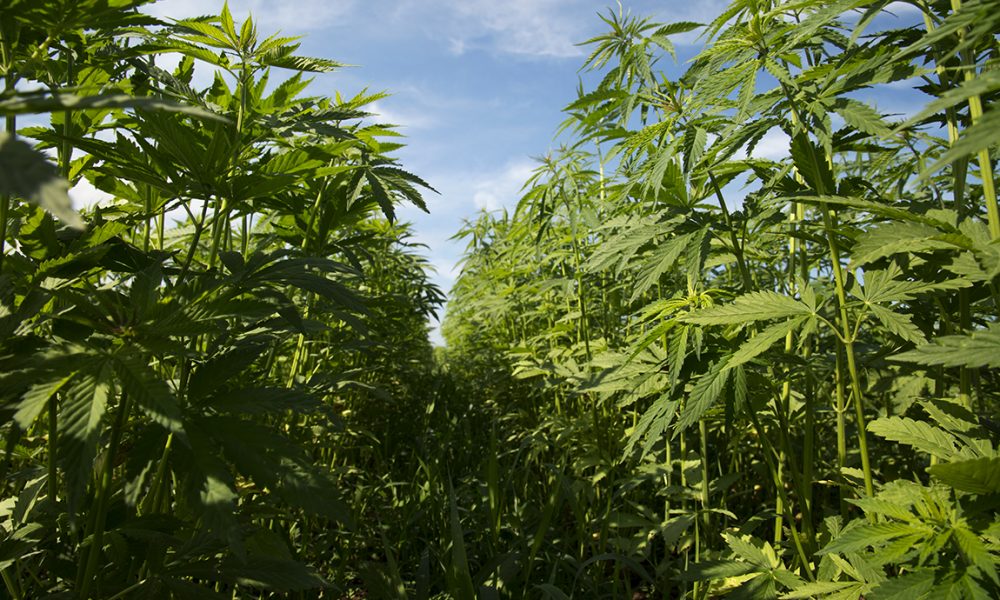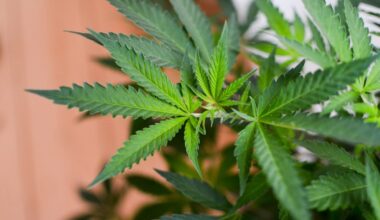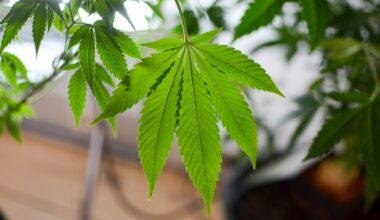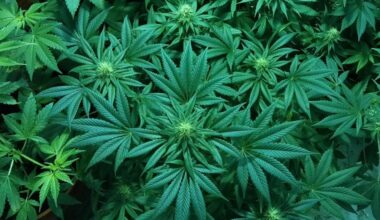“When you see a processing facility [breaking] ground for more expansion, this sends a signal to the market that Minnesota is ready to lead on this.”
By Baylor Spears, Minnesota Reformer
As a high school teacher and football coach not that long ago, Gov. Tim Walz (D) was no doubt on the lookout for students under the sway of mind-altering substances.
As governor in the middle of a reelection campaign, Walz on Monday found himself at Hemp Acres, now one of the largest cannabis processing facilities in the nation after opening their third operation, a 37,000-square-foot facility 35 miles west of Minneapolis.
Walz and local and company officials celebrated the opening of the new plant on Monday, offering it up as a shining example of agricultural innovation and diversification.
“When you see a processing facility [breaking] ground for more expansion, this sends a signal to the market that Minnesota is ready to lead on this,” said Walz, whose likely GOP opponent Scott Jensen once flirted with cannabis legalization as a state senator before backing off.
Walz said he hopes more Minnesota producers enter the industry and begin growing hemp.
I visited Hemp Acres in Waconia today to hear about their booming business. Agriculture is a pillar of Minnesota’s economy and our rapidly growing hemp industry will add to the foundation of our farming tradition while also expanding our economy. pic.twitter.com/ytBZtAGhyQ
— Governor Tim Walz (@GovTimWalz) July 19, 2022
Hemp Acres buys raw hemp from local farmers across Minnesota and the Midwest and processes it into a bevy of ingredients like Cannabidiol, or CBD, hemp seed oil, fiber and protein powder. These are then supplied to companies in industries like food manufacturing, construction and supplements.
Hemp Acres is trying to restore what was once a thriving industry before a moral panic over marijuana led to the plant’s prohibition. As the company’s website says, “The Midwest was once known as the hemp belt of America, and during the brief re-legalization of hemp in the 1940’s to help support the war efforts, one of the largest hemp processing mills in the world of its time was located just one hour west of the Hemp Acres facility.”
Company founder Charlie Levine, the state’s first licensed hemp processor, said the company wants to use the entire plant to exploit its many practical applications. “We specialize in processing every aspect of the hemp plant all the way from the grain to the stock.”
And the green rush is just starting, following a new Minnesota law in effect July 1 legalizing hemp-derived THC—the stuff that gets people high—in 5-mg increments of edibles and drinks.
Margaret Wiatrowski, Hemp Acre’s general manager, said the law caused an explosive increase in demand, as more people are looking for hemp-derived THC products. She said the company is looking to help meet that demand.
“It’s caught everyone unaware, but we are probably in the best position to be able to make those products and make them safe,” Wiatrowski said. “But it’s going to take time.”
.@GovTimWalz, joined by MDA’s hemp team, helped cut the ribbon on Hemp Acres new processing facility in Waconia. The facility will be able to process all parts of the hemp plant & up to 50,000 acres in several years, giving MN farmers better opportunities for the #hemp market. pic.twitter.com/1MFewYm7sB
— MN Agriculture Dept (@MNagriculture) July 18, 2022
Hemp Acres started small, as an early participant in the state’s industrial hemp program, which was created after a 2014 federal farm bill that allowed state agriculture departments to begin cultivating hemp for research purposes. The law was liberalized further in the 2018 farm bill.
The facility expansion is launching a new phase for the company. Over the next five years, Levine said the goal is to process 30,000 to 50,000 acres of hemp across the Midwest.
Despite the sunny outlook, however, the number of licensed hemp growers has actually fallen in recent years. In 2020, Minnesota reached a high of 461 licensed growers, falling to 348 in 2021. Anthony Cortilet, supervisor of the state Department of Agriculture’s industrial hemp program, said there are 300 hemp licenses and 2,000 acres in production this year. He said the department wants to get the state up to 7,000-10,000 acres planted.
This story was first published by Minnesota Reformer.
Photo courtesy of Brendan Cleak.
Medical Disclaimer:
The information provided in these blog posts is intended for general informational and educational purposes only. It is not a substitute for professional medical advice, diagnosis, or treatment. Always seek the advice of your physician or other qualified healthcare provider with any questions you may have regarding a medical condition. The use of any information provided in these blog posts is solely at your own risk. The authors and the website do not recommend or endorse any specific products, treatments, or procedures mentioned. Reliance on any information in these blog posts is solely at your own discretion.





